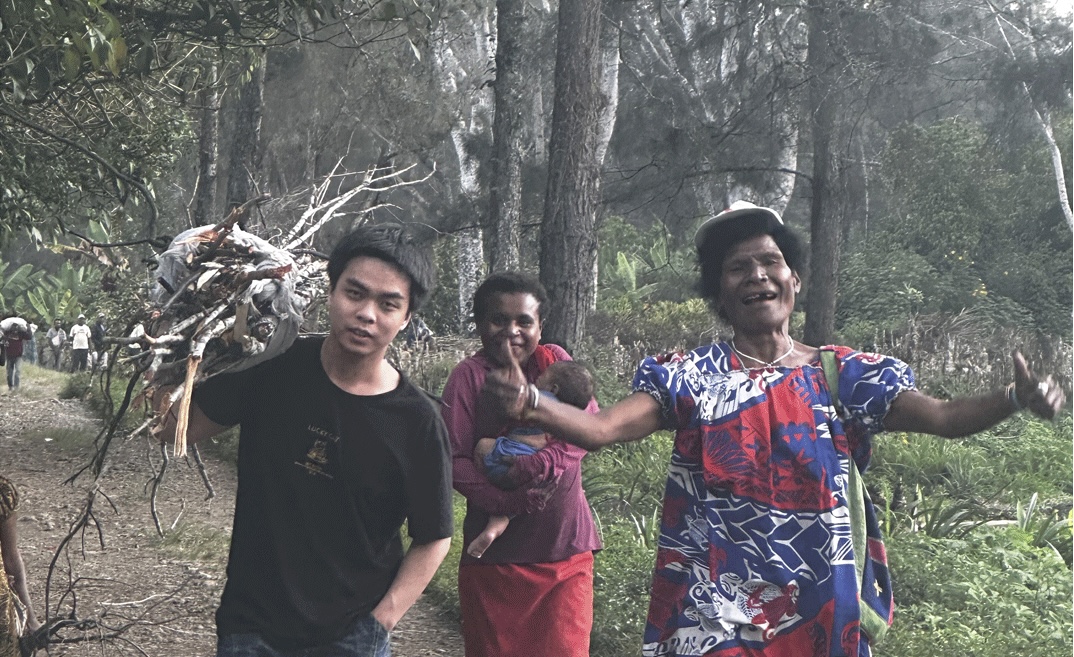Chinese migrants in Port Moresby: from adventurers to seekers of a fresh start
In a lengthy report, Sixth Tone explores how emigration from China to Papua New Guinea has changed. The Oceanic country is a major destination for infrastructure projects, mining, and construction. While some immigrants are trying to integrate with the local community, others keep their distance fearful of robberies and holdups.
Port Moresby (AsiaNews) – For decades, Chinese migrants, many of them young, have moved to Papua New Guinea for its riches and treasures, to make their fortune and earn easy money, before returning to their country of origin.
Today, however, faced with a growing Chinese presence throughout the Pacific region and employment problems at home, some migrants, especially the younger ones, are choosing to stay and build a fresh new life, as Sixth Tone explains in a lengthy report.
According to the Chinese state-owned English-language magazine, the country is now a major destination for Chinese investment in infrastructure, mining, and construction, “busy but fulfilling.”
For decades, Chinese migrants have sought and found opportunities in the resource-rich Pacific island nation. Many arrived in search of their "first bucket of gold,” opening hardware stores, supermarkets, and shopping malls. They worked much of the time, lived frugally, and often left once they had earned enough money.
Fan Haoyu, 26, boarded a flight to Papua New Guinea in the summer of 2021, and stayed.
“Our company originally only sold hardware,” he said, “but since several young colleagues and I joined, we’ve expanded into engineering projects. When you see hospitals and schools you designed being built, you can’t help but think you’ve done something for this place.”
In Papua New Guinea, Fan is now part of a younger generation of Chinese attracted not only by the country's untapped resources but, more generally, by the opportunity to work, manage, and sometimes stay.
For many, it is a quiet reversal of the old practice of making a quick buck and leaving.
While older generations lived frugally, saved aggressively, and kept their distance from the local population, newcomers arrive with college degrees, fluency in English, and a sense of choice.
They join established companies, teach, provide consultancy, and manage local staff. At the same time, they are slowly redefining what it means to be Chinese abroad.
Fan's mother, Niu Li, first arrived in Papua New Guinea in 2011 as a member of a Chinese mining company's reconnaissance team in the Western Highlands. However, the project collapsed due to protests by local communities.
“The resistance was palpable," she explained. Foreign involvement in the island's extractive industries has long been met with suspicion.
Chinese companies, often seen as new players in an ongoing dispute over land and resources, have encountered the same resistance once reserved for Australian and other Western firms.
After repeated delays and setbacks, Niu returned to China, only to return in 2018, this time as an investor.
With two partners, she set up a hardware and building materials company that now operates five stores and employs more than 200 local workers.
“Papua New Guinea is still in an early stage of development, and its relationship with China keeps growing,” she said.
At the same time, she has also observed a shift in attitudes; in recent years, the local population's stance towards Chinese migrants has softened.
According to observers, the reasons for this are major capital investments and infrastructure projects under China's Belt and Road Initiative.
This difference in approach and relationships with Chinese immigrants has also been noted by local authorities.
Many Chinese migrants are integrating more than previous generations, this according to Kolda, deputy board chairman of the Western Highlands Provincial Health Authority and a member of the provincial education council.
“They actively participate in community activities and show a strong interest in local culture,” he said.
Others, however, keep their distance. “Some seem more reserved,” Kolda explained. “They avoid sitting at the same table for meals, or even riding in the same car with locals.”
In fact, for some, keeping their distance is the only way to manage risks. Jack, a 34-year-old second-generation entrepreneur originally from Fujian, living in Port Moresby, reports that his family business has been robbed three times in recent years.
“Locals traditionally see the Chinese as wealthy businesspeople,” he explains, “making them primary targets [for robberies and holdups] in areas with poor security.”
For over a century, small Chinese communities have taken root in Papua New Guinea, beginning with indentured labourers under colonial rule in the late 1800s. In 1966, official statistics counted only 2,455 ethnic Chinese residents.
This number grew rapidly in the 1990s, when merchants from Fujian, a coastal province known for its trading culture and overseas family networks, began arriving in ever greater numbers.
Chinese immigrants opened supermarkets, hardware stores, and machine shops in cities like Port Moresby, the country's capital, and Mount Hagen, building what became the nucleus of Papua New Guinea's Chinese business community.







.png)










